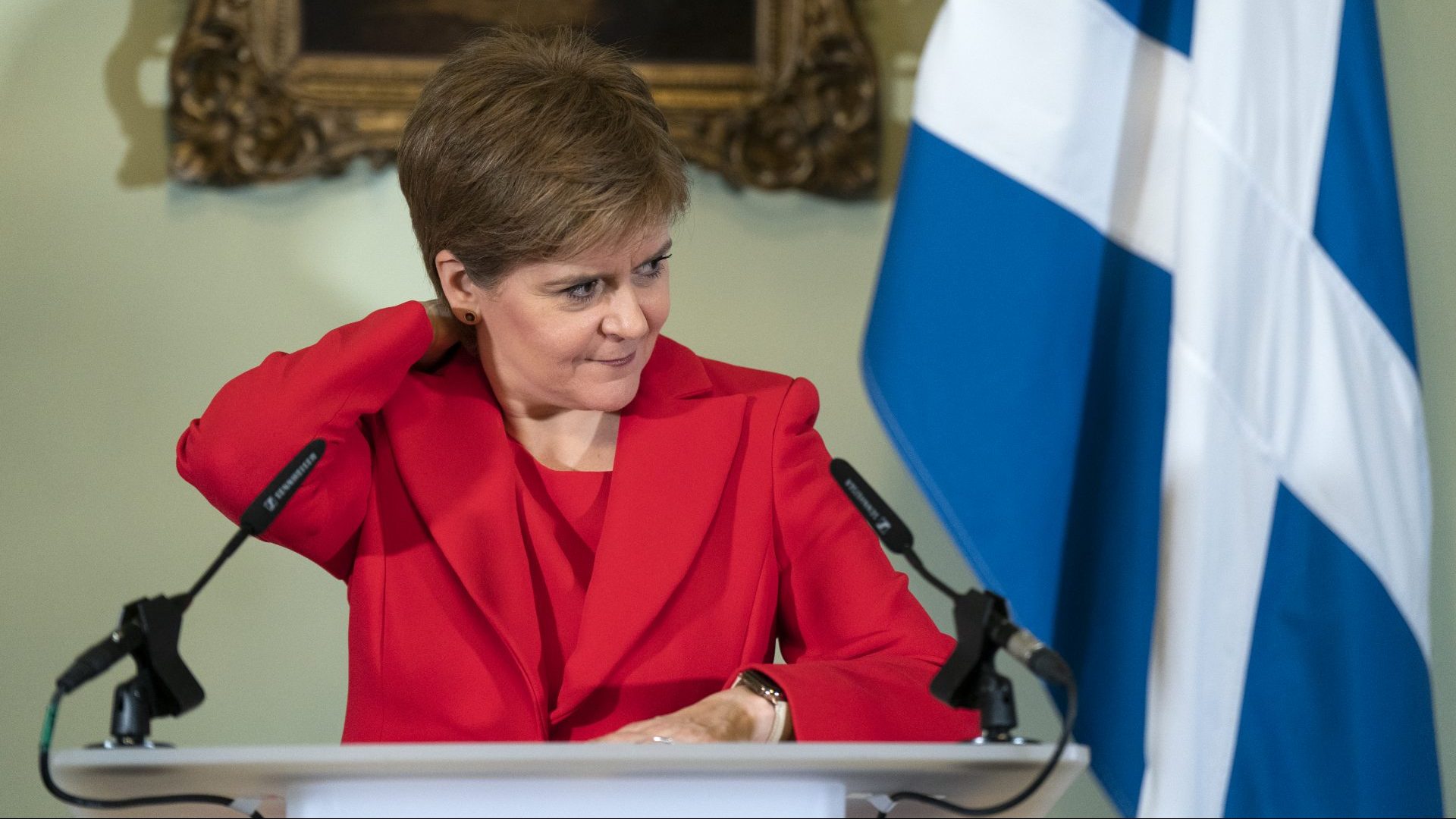In contemporary British politics, it’s hard to shock. But one piece of news has achieved it: Nicola Sturgeon is to step down as first minister of Scotland.
At a press conference at Bute House, the Scottish National Party leader said that she knew “in my head and in my heart” that this was the right time to step down from “the best job in the world” because “politics has taken its toll”.
Sturgeon denied that “short-term pressures” – code for opposition to her stance on gender identity laws – had prompted her decision, although the resulting drop in her approval ratings and the SNP’s polling numbers has clearly taken its toll.
More interesting was her belief that she – or, at least, the opinion many Scots have of her – is now a blocker to achieving the SNP’s goals of independence and a return to the European Union.
“I am firmly of the view that there is now majority support for independence in Scotland,” she said, but conceded that “a new leader would be better” to deliver it at the polls – “Someone whom the mind of almost everyone in the country is not already made up, for better or worse. Someone who is not subject to quite the same polarised opinions, fair or unfair, as I now am.”
She continued: “I feel more and more each day now that the fixed opinions people increasingly have about me, some fair and others a little more than caricature, are being used as barriers to reason debate in our country… Too often I see issues presented as a result viewed, not on their own merits, but through the prism of what I think and what people think of me.”
Sturgeon has clearly been toying with this issue for some time. If the majority believe in independence, then why has ‘Yes’ led in only 12 of 47 opinion polls on the matter held since the 2021 Scottish elections? And why has the SNP’s lead among Scottish voters slipped from 26% at the 2021 vote to between 18%-19% now?
Sturgeon has concluded that the problem is her. On watching her announcement it became clear this was not a rash decision. Her remarks did not give off the air of a speech hurried together the night before but rather ones that had slowly come together over time. Indeed, the first minister said this was a decision she had been grappling with for weeks.
The questions came as fast as the tributes. Most commonly, what next for the party? And, what did this mean for Scottish independence?
A day before Sturgeon’s announcement, a new poll by Lord Ashcroft showed that in Sturgeon’s long-sought indyref2, which seemed to become a real possibility after Brexit, Scotland would now vote No to independence by a 12-point margin. Though Sturgeon insists that “polls come and go”, this must have been devastating. It is a greater margin than the 10.6% by which the 2014 referendum was won.
Sturgeon’s big idea – whether to use the next general election as a de facto referendum – was dismissed in the same poll, by 67% to 21%.
Another recent survey delivered a similarly unfavourably picture. A YouGov survey of 1,088 Scottish voters for the Sunday Times showed support for independence falling from 53 per cent to 47% among decided voters. The situation looked equally bleak for the SNP at Holyrood and Westminster as support dropped from 50% to 44% in the Holyrood constituency vote and from 40% to 36% in the regional list.
Sturgeon has long believed that the vote for independence would harden during an indyref campaign. But what happens next will be a test of her new belief, that the sheer volume of minds made up about her is holding back the cause she champions.
Her former ally Alex Salmond said as much after Sturgeon’s resignation. “We’re now at a point where independence is a near a majority opinion in Scotland. That’s occurred over the last 25 years. But people might well argue that there hasn’t been a distinctive shift over the last few years, and they might [ask] why that should be.”
One problem for Salmond, for Sturgeon, for the SNP and for all those who believe in Scottish independence is that there is no natural, hugely popular successor figure in the movement. None of the leadership candidates is likely to quickly deliver a consistent series of poll leads so large that asking the question again becomes inevitable.
The idea of the next election as a de facto referendum may not survive the SNP’s special conference in March. The survival of the idea that a Scottish majority wants independence, but not with Sturgeon, will now be tested.
In the meantime, Scottish independence feels like a movement without a leader. Nicola Sturgeon has stepped down, and the causes of leaving one union and rejoining another have taken a big step backwards.











